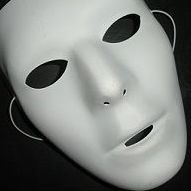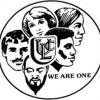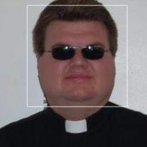-
Posts
170 -
Joined
-
Last visited
About Geordon

- Birthday 04/14/1973
Helpful Information
-
Title, Name/Nickname
Brother Shoshin
-
Gender
Male
-
Marital Status
Married
-
Location
Northern Illinois
Friendly Details
-
MBTI
INTP-A/-T
-
Interests
Zombies, space opera, Buddhist teachings, emergency and disaster preparation. I have an unquenchable thirst for knowledge and information.
-
Pets / Animals
One dog, Oni
-
Grateful For
My loving wife and family
-
Your Motto
Sentient beings are boundless: I vow to liberate them.
-
Doctrine /Affiliation
Buddhist, Druid (OBOD), Devotee of Hekate
Other Details
-
Occupation
EMS Dispatch
-
Website URL
http://betwixt-the-trees.us
Geordon's Achievements

Honorable Friend (6/17)
-

Hidden Buddhist in all of us?
Geordon replied to VonNoble's topic in Eastern Religions & Philosophies
I don't read Rolling Stone (or any magazine, to be honest), but that sounds like something that I would expect to hear from him. That's not a bad thing. However (and this is something that I have discussed with my Rinzai Zen teacher, Meido Moore roshi at Korinji https://www.korinji.org/teachers) some of the bigger name teachers of Buddhism in the United States (especially the likes of Jon Kabat-ZInn and Alan Watts) are putting forth ideas and processes that are not strictly nor traditionally Buddhism, especially Zen Buddhism. That's not to say that their teachings are necessarily bad, but they are not Buddhist. Yes, Buddhism is something that has evolved and adapted as it has moved across new cultures, but there are certain things that are fundamental to Buddhism that have to be understood before you can build on it. -
The thing is that Wiccans are the most widely publicized sect of the Pagan multiverse, and therefore are assumed by many to be Paganism as a whole. Nothing could be farther from the truth, despite the fact that many Pagans (myself included) got a start BECAUSE of Wicca. Simply because it is more available than other varieties of Paganism. Also, there is a big difference between "pagan" (little P) and "Pagan" (big P) that is often ignored. Just the same as witchcraft and Witch are not interchangeable. Both of the first terms (little letters) are more of a "what one does" rather than "who one is." I read the post you shared, Jonathan, and it seems that the author is pissed about people who are plainly ignorant. The fact of the matter is that there are ALWAYS people who are ignorant.. The author is a Witch, so I would expect her writing to be largely about Wicca, just like I expect John Beckett to be more Druid and UU, or Cyndi Brennan to be heavy on Hekate. That's who they are, they write from their worldview. So does Starlight Witch, which is perfectly fine. It sounds like she's suffering from a common thing that authors get hit with: Fans who are under the mistaken impression that the author belongs to the fans, rather than the fans and author existing in a symbiosis. The fact of the matter is that the author's writings come from the author, full stop. The author is under no obligation to write what fans want or expect. After all, the fans' expectations are theirs, not the authors. Pagans are people too, including often being ignorant twats. It seems that the author in this case is fed up with those.
-
A lot of that has to do with the fact that Paganism generally looks down on proselytizing. Many of us see that as trying to push one variety of religion on someone who doesn't necessarily want or need it. That's not to say that there aren't paid classes, etc that are not valuable, because I know that there are some that are very good. Those tend to be specialized for a particular topic or audience. There has been a big debate for YEARS over whether it is "ethical" to charge for teaching in the Pagan community. Personally, I think there is a LOT of reason to charge for exchange of knowledge, similar to how you pay to take your car to a mechanic, call a plumber in to fix a leak, or a doctor when you are ill. They have spent the time and expense to become specialists in their fields, and they deserve to be compensated for their expertise. IMO, it's actually easier to come out as Pagan than it is Atheist, these days. Atheists are usually attacked en masse by the monotheists, because everybody "knows" that it's not possible to be moral and not be afraid of an eternity in a lake of fire. I mean, come on. You have to be afraid in order to not commit murder, right? Seriously, though, it used to be extremely bad to be a public Pagan. Loss of parental rights, loss of career, forced indoctrination, etc. Those were significant and real risks for Pagans not too many years ago. For us, it's gotten a lot better. For a large part, we're just kind of ignored right now.
-
This also falls into the "Talking to Pagans is like herding cats" category. There are so very many different kinds and paths of Pagans, that almost the only universal truth is that no two Pagans are alike. I don't know of any Dutch resources, unfortunately, but you might be able to find something useful at the CUUPS main website: http://www.cuups.org or the CUUPS main Facebook page at https://www.facebook.com/groups/CUUPS/ As Johnathan said, the best way to learn about Paganism is to roll up your sleeves and start DOING. Most Pagans that I know are more interested in DOING than reading about doing. There is no way to learn all about Paganism. There is always something else to learn, some other way to encounter the world. What I would suggest is do some on-line research about the various types and ways of Paganism, then just picking an area to investigate with her, based on her abilities. I identify as Druid, Buddhist, and devotional hard polytheist. That's a fancy way of saying that I do certain things to honor one of the divine entities, which I view and encounter as distinct and separate from other divine entities. As opposed to a "soft" polytheist who would tend to view all divine entities as different aspects or faces of the same greater, central divine entity. My wife considers herself to be a "hedge witch" which would be similar to a historical wise woman who lived outside the village and people visited for various potions, ointments, teas, etc to make their lives easier. I could be more help if you could let me know what some of her interests and abilities (and capabilities) are. My knowledge is yours.
-
Patheos Pagan has some really great authors. Some are more hard-line, some are very Universalist, but all of the ones that I've come across are all typically higher quality. Random pagan websites are a mish-mash. Some utter rubbish, some fantastic, and the vast majority somewhere in between. I invite you to to look up our CUUPS (Covenant of Unitarian Universalist Pagans) group on the Book of Faces here: https://www.facebook.com/groups/whiteoakgrovecuups/ We're a conglomeration of a LOT of different Pagan paths, and while there are only a few of us who post regularly, there are a lot of people who hand around in the background. You can also PM me here, though I'm on intermittantly... Life happens, doesn't it? I'd be glad to help!
-
We could use more Pagan voices in the broader social discourse, too, just like any minority. Unlike many other social minorities, Pagans have countless subtle variations and sub-groups, and there is no single defining characteristic. Moreover, there is no single, central body or authority. Even the Abrahamic faiths that we skirted above have a common basis to draw from, regardless of the fact that they are all three have vast differences in expression, to the tune of fundamentalists of each stripe calling for war with at least one of the others. (cf. The Crusades, the Global Jihad, and the Jewish/Palestinian war in Gaza and other areas.) So, anyway, like I said, I see that several of the reasons that I took my leave most recently have been dealt with, so I'm back, and I'm Pagan. What would you like to talk/hear about?
-
When you consider that there is actually no central authority of Paganism, like there is with Judaism, Islam, and Christianity (all go back to Abraham, where most of the core doctrine comes from), it's not surprising at all. Rather, it's surprising that we can come together as well as we can at all! Lol You'd be surprised to learn how many contemporary military personnel are some variety of Pagan. The Evangelicals who have ben running the Chaplains' Corps for years have been fighting a losing battle against recognition of non-monotheists for decades. As for shaking things up, John Beckett has an interesting post on Patheos about this very thing: My Vision of a Pagan Future
-
I've been absent for a while, due to both personal and reasons associated with the board. I did some digging the other night and I see that at some of the significant issues that I had with the board have been addressed to some extent. I'm back to give it another whirl. Believe it or not, both the Department of Defense (The U.S. Army Chaplains Guide to Wicca, Department of Defense adds Heathen and Pagan religions to recognized faith groups)and Veteran's Administration have been making inroads for the acceptance of various inclusions of Paganism from an official perspective: Multiple different Pagan symbols authorized for use on VA/DoD headstones, Circle Sanctuary Minister Becomes First Pagan VA Chaplain Resident. Both Circle Sanctuary and Sacred Well Congregation are recognized by the VA for being formally recognized Pagan clergy (lots of administrative ooga-booga as far as the VA and DoD go) training and ordination. That's required for access to VA hospitals in a professional Chaplain role. There is always less headache if there is no government involvement. Too much government involvement and we have the likes of Iran, with religious conservatives running the show. Too little involvement and there is no protection for minority sects. Hell, even the Bahá’í Faith is more protected in general than Paganism. Then again, it looks like Bahá’í is another manifestation of monotheism, so it's less of a challenge to wrap the head around. Anyway, in this day and age, Paganism needs government and societal recognition protection much the same way as Islam does. The only effective way for that to happen is for the Big Umbrella of Paganism to get it's collective ** together and realize that there is strength in numbers, even if the individuals are not in 100% agreement. Kind of like the Democratic Party in US government (he says while looking at his 2019 DNC membership card). To answer your question directly, most Pagans don't want to work together. They want to be left alone to do their own thing, which is a perfectly reasonable desire, but an immature and short-sighted one. I don't have any answers. I wish I did, but even IF I did, I don't have the Big Pagan Name to push it in front of other people... Nor do I have the energy that would require. But I know that there is movement in the Pagan community toward formal recognition in pursuit of equality. It's just taking time.
-
Ok, that was quick. First, let me say that I define myself as follows: I am a Buddhist, a Druid, and a Devotee of Hekate. I would classify myself as a devotional hard polytheist, as I perform rites to Hekate and I view the many gods as separate individuals, discrete in and of themselves, rather than as different aspects of some amorphous universal Divine. Now, I originally took my ordination through ULC with the expectation that I would be available for my Pagan community in general. Most Pagans don't think that they need formal clergy since they mostly do things for and by themselves. Seasonal rites being an obvious one. I view the word "clergy" as being a general category denoting some sort of legal and/or formal recognition and training as well as informal education, as would be self-taught and "lay-leaders" in formal churches. Professional clergy is, in my mind, a phrase that covers two distinct types of religious figures: Those who lead congregations and write sermons ("pastors" in my book), and those who take care of the more spiritual needs of their congregants, like leading rites of passage and care of the ill and their families ("ministers" as I choose to call them). In the Pagan world, we have little in the way of formal education. Cherry Hill Seminary is pretty much the closest thing that we have. IMO, we *do* need some specific trained, professional clergy, so that we can "sit at the adults' table" along with the monotheists. We need people trained to work with people having a crisis of faith, having to deal with major life changes, etc. But, as Pagans are both distrustful of organized faith and authority, it's a fine line to walk. John Beckett is a UU Druid who posts frequently on Patheos. I don't always agree with him, but I definitely respect his work and writing. He wrote a blog post a few weeks back that pretty much works in concert with my own beliefs: 15 Roles of Pagan Priesthood – How Many Is Too Many?
-
Speaking as a Pagan voice, I got tired of being ridden down and incessantly argued with by a handful of specific individuals on this board. The administration has gone absent, and one of the people who was (is?) one of the largest problems *is* the only active admin. When I addressed the issue with Andre directly, he basically washed his hands of it and said that if the forum was too much of a problem, he'd just kill it off. Now, that being said, let me read the article in question. Brb.
-

a common atheist fallacy
Geordon replied to cuchulain's topic in Freethought, Secularism, No Religion
Lighthearted my ass. That was a personal attack an you know it. -

a common atheist fallacy
Geordon replied to cuchulain's topic in Freethought, Secularism, No Religion
That's why it's called "faith" rather than "fact."



.thumb.jpg.f77024d19cd43810cc5deb8dbe7ded60.jpg)




